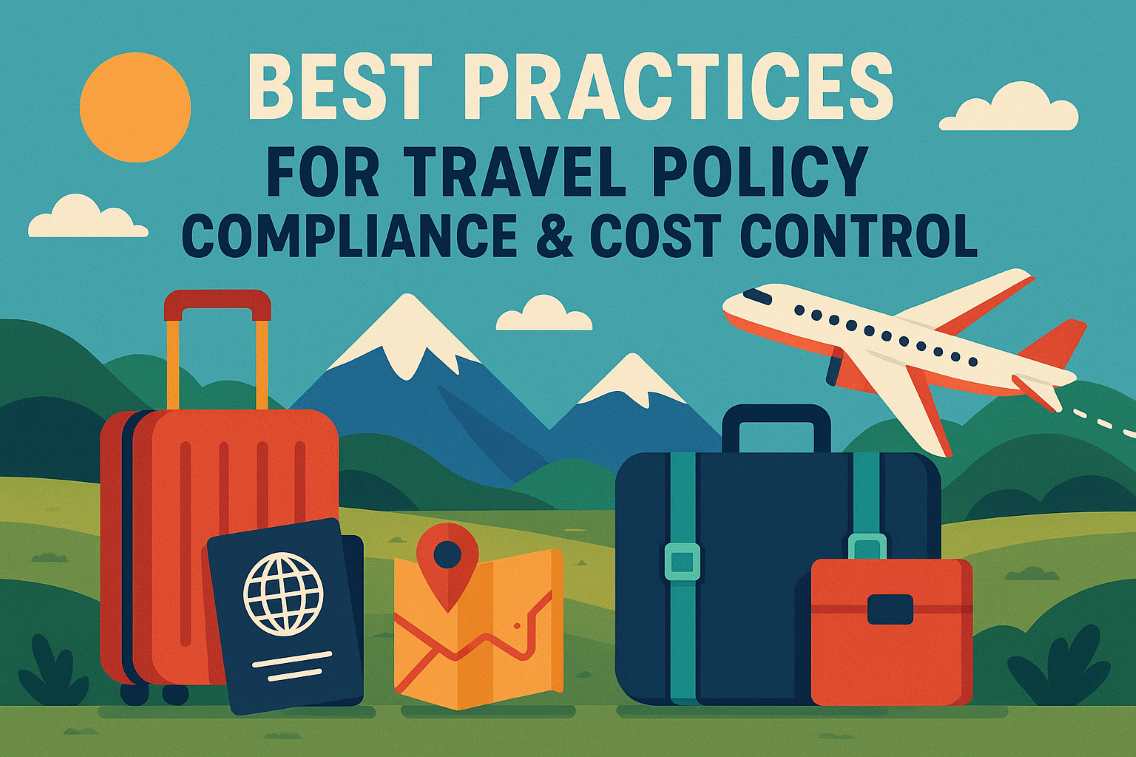Best Practices For Travel Policy Compliance & Cost Control

Managing business travel goes beyond flights and hotels. It requires a structured system that protects travellers, ensures compliance, and controls spending. Without it, costs rise and rules get ignored. Discover how to strengthen compliance, safeguard employees, and reduce waste. Keep reading to learn the best practices your business needs today.
Build Clear And Practical Travel Policies
Every successful travel programme starts with a clear and practical policy. Employees need to know what’s expected before they book a trip. This means setting rules on preferred suppliers, class of travel, and booking timelines. If these guidelines are too vague, staff will fill the gaps with their own decisions, which often leads to higher costs.
A well-written policy doesn’t only cover flights and hotels. It should also address rail travel, car hire, meals, and incidental spending. Think of it as the blueprint that shapes every trip. For example, CT Business Travel provides guidance to ensure accommodation and transport decisions are based on location, price, and safety.
Use Centralised Booking Platforms
One of the biggest threats to compliance is staff booking outside approved channels. When this happens, businesses lose oversight and spend more than necessary. By using a centralised booking system, you can ensure every transaction follows policy. This approach also makes it easier to compare costs, track spending, and flag any non-compliant bookings early.
Central systems also give finance and operations teams the visibility they need. You can review travel data in real time and identify savings that wouldn’t be obvious if bookings were scattered across multiple platforms.
Automate Approvals And Reporting
Manual approvals slow processes and increase errors, while automated workflows apply rules consistently. Non-compliant requests are flagged for review, encouraging adherence without delays.
Dynamic reporting is just as vital, since tracking spend patterns highlights waste and negotiation opportunities. This insight turns cost control into a proactive process, ensuring savings are secured before and during travel, not after.
Educate Travellers On Compliance
Policies succeed only when employees understand and accept them, so education is vital. Training sessions and reminders reinforce expectations and explain why compliance matters.
When staff see that compliance enhances safety, reduces stress, and saves money, they’re more willing to follow. It’s not about limiting choice but ensuring trips remain safe, affordable, and aligned with business goals.
Balance Cost Control With Traveller Safety
Cost savings should never override safety. UK businesses have a duty of care to protect staff when travelling. This means assessing destinations, monitoring disruptions, and offering emergency support.
A strong policy balances savings with safeguards, so employees feel supported. Real-time tracking, 24/7 help, and clear emergency protocols show wellbeing matters as much as efficiency, boosting compliance and trust across the organisation.
Review And Adapt Policies Regularly
Travel needs shift over time, so policies must adapt to stay effective. What worked before Brexit or the pandemic may not suit today’s conditions. Regular reviews keep rules aligned with costs, contracts, and safety. By gathering traveller feedback and adapting to real experiences, compliance becomes easier and cost control more sustainable.
Strengthening Compliance While Saving Costs
Strong travel policy compliance relies on clear rules, smart tools, and engaged staff. Centralised booking, automation, and safety focus cut costs and reduce stress. Companies that treat compliance as a shared responsibility achieve greater savings, smoother trips, and improved protection for employees on every journey.



